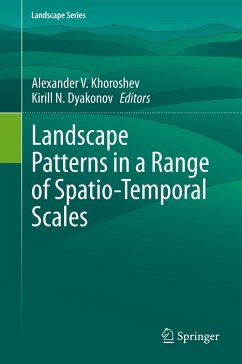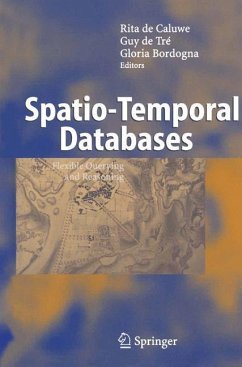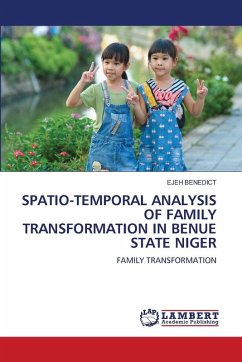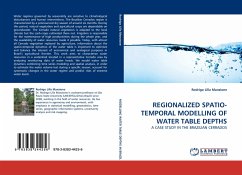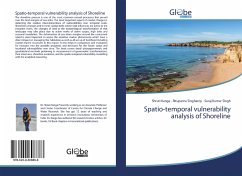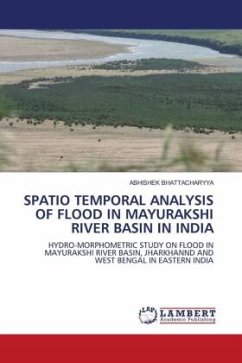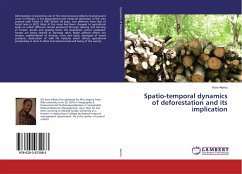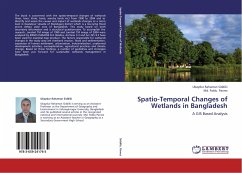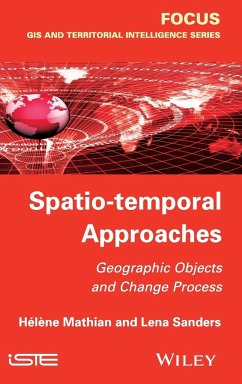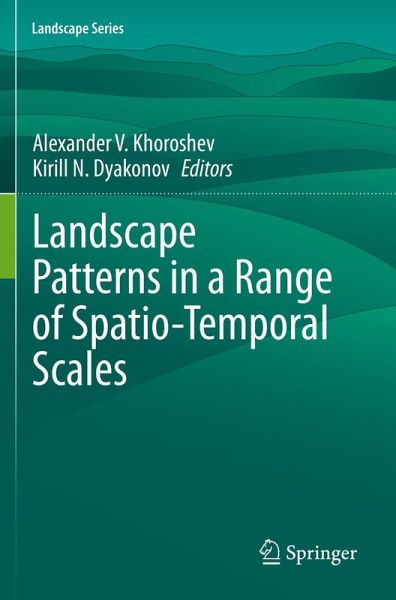
Landscape Patterns in a Range of Spatio-Temporal Scales
Versandkostenfrei!
Versandfertig in 6-10 Tagen
76,99 €
inkl. MwSt.

PAYBACK Punkte
38 °P sammeln!
This book presents the polycentric and multiscale view of landscape which has been developed in Russia within a framework of physical geography since the early twentieth century. The authors develop the ideas of hierarchical organization of a landscape and strong relationships between abiotic and biotic components with equal attention to both vertical fluxes and lateral transfer. Three-dimensional representation of landscape involves strong emphasis on abiotic drivers of pattern development including relief, geological structures and runoff.The objective of this book is to demonstrate the mult...
This book presents the polycentric and multiscale view of landscape which has been developed in Russia within a framework of physical geography since the early twentieth century. The authors develop the ideas of hierarchical organization of a landscape and strong relationships between abiotic and biotic components with equal attention to both vertical fluxes and lateral transfer. Three-dimensional representation of landscape involves strong emphasis on abiotic drivers of pattern development including relief, geological structures and runoff.
The objective of this book is to demonstrate the multiplicity of models and multiscale approach to description and explanation of landscape pattern, functioning, dynamics, and evolution. The contributions deal with various hierarchical levels ranging from within-unit interior variability to between-units interaction at landscape level, as well as regional and supra-regional zonal patterns.
Divided into 8 clear parts, the 28chapters treat spatial pattern in one of the following aspects:
indicator of actual matter and energy flows control over actual processes including disturbance expansion as well as determinant of future development indicator of genesis and prerequisite for future trends driver for short-term dynamics of processes response to climatic and anthropogenic influences factor of settlement network and land use adaptation at various historical epochs framework for actual land use spatial arrangement.
This contributed volume is written for researchers and students in the field of landscape ecology, physical geography, environmental impact assessment, and ecologicalplanning.
The objective of this book is to demonstrate the multiplicity of models and multiscale approach to description and explanation of landscape pattern, functioning, dynamics, and evolution. The contributions deal with various hierarchical levels ranging from within-unit interior variability to between-units interaction at landscape level, as well as regional and supra-regional zonal patterns.
Divided into 8 clear parts, the 28chapters treat spatial pattern in one of the following aspects:
indicator of actual matter and energy flows control over actual processes including disturbance expansion as well as determinant of future development indicator of genesis and prerequisite for future trends driver for short-term dynamics of processes response to climatic and anthropogenic influences factor of settlement network and land use adaptation at various historical epochs framework for actual land use spatial arrangement.
This contributed volume is written for researchers and students in the field of landscape ecology, physical geography, environmental impact assessment, and ecologicalplanning.





